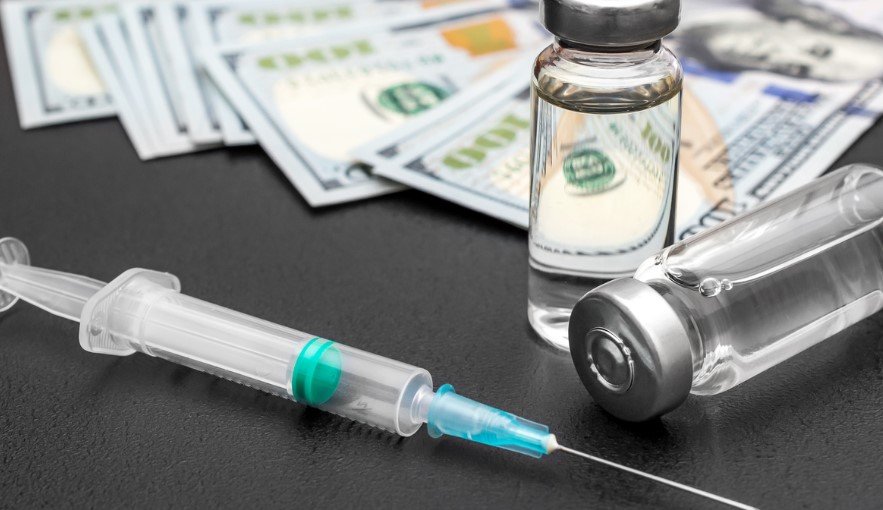Starting January 1, 2025, a landmark law in New Jersey has made healthcare more affordable by capping out-of-pocket costs for critical medications like insulin, inhalers, and epinephrine injectors. This new measure promises significant savings for residents who rely on these treatments to manage chronic conditions.
The price caps, signed into law by Governor Phil Murphy in July 2023, exempt insulin, asthma inhalers, and EpiPens from insurance plan deductibles. The law also imposes limits on copayments for these drugs, with prices capped at $35 for insulin, $50 for asthma inhalers, and $25 for EpiPens for a 30-day supply.
A Step Toward Affordable Healthcare
The soaring costs of prescription medications have long been a burden for families across the country, but New Jersey’s new law brings hope to those who struggle with these expenses. Senator Joe Vitale, who sponsored the bill in the state Senate, explained, “The cost of staying well and treating a variety of illnesses is just extraordinarily expensive, so anything we can do to keep those prices under control, we can, and we will. Obviously, in this case we have.” The price cap on insulin, inhalers, and EpiPens aims to alleviate some of that financial strain and make life-saving treatments more accessible.
It’s not just a win for individuals; it’s a win for families, too. For many, managing chronic conditions like diabetes and asthma can lead to unforeseen medical expenses that add up over time. By reducing the out-of-pocket costs, the law provides much-needed relief for families who otherwise might struggle to afford these essential medications.

Expanding Coverage Beyond Insulin
While the cap on insulin prices has garnered the most attention, the law goes a step further in supporting residents with diabetes and asthma. It requires insurance plans approved by the state to cover glucose test strips and other items that help manage diabetes. Diabetes management goes beyond just insulin, and this expanded coverage makes it easier for individuals to access the tools they need to control their condition effectively.
Additionally, the law mandates that insurance plans provide coverage for diabetes self-management training courses if prescribed by a medical professional. These courses are vital for individuals who need guidance on how to monitor and control their blood sugar levels. They play a critical role in preventing complications associated with diabetes, and having them covered by insurance ensures that individuals are equipped to handle their health needs without the added financial burden.
- Key Provisions of the New Law:
- Capped out-of-pocket costs for insulin ($35), inhalers ($50), and EpiPens ($25).
- Coverage for glucose test strips and diabetes management items.
- Mandatory coverage for diabetes self-management training courses when prescribed.
These provisions reflect a comprehensive approach to managing chronic conditions and show a real commitment to making healthcare more affordable for all.
Federal vs. State: How New Jersey’s Law Stands Out
While federal law already limits insulin costs to $35 per month for some Medicare beneficiaries, New Jersey’s state law goes even further. Unlike the federal cap, New Jersey’s law has no age restrictions, meaning that individuals of all ages—whether they’re on Medicare or not—can benefit from the price cap. This extension to a wider range of residents marks a significant step in providing equitable healthcare access, especially for those who may not be covered by federal protections.
It’s also worth noting that some major insulin manufacturers, including Eli Lilly, have voluntarily capped their insulin prices, but these caps are not uniform across the industry. By passing this state law, New Jersey has made it clear that it values the health of its residents and is willing to take proactive steps to safeguard their wellbeing, regardless of the federal landscape.
Industry Impact: Pharmacy Benefit Managers and Transparency
This law also addresses the broader issue of pharmaceutical transparency and the business practices of pharmacy benefit managers (PBMs), the middlemen who play a significant role in determining drug prices. The law, alongside other recent reforms, aims to improve transparency across the drug supply chain, making it easier for residents to understand how much they’re paying and why.
Governor Murphy’s office highlighted that the legislation is part of a larger initiative to curb the rising cost of prescription medications and ensure that residents have access to life-saving treatments. “The Governor is proud to have signed into law a nation-leading policy to cap the cost of prescription medications for insulin, inhalers, and EpiPens,” said Murphy spokesperson Maggie Garbarino. This proactive approach will undoubtedly resonate with New Jersey residents who have long struggled with high healthcare costs.
As New Jersey leads the way in healthcare affordability, the question remains: will other states follow suit? With insulin prices already capped at the federal level for Medicare recipients, it’s possible that other states will look to New Jersey’s legislation as a blueprint for similar reforms. In the meantime, New Jersey residents can breathe a little easier knowing that critical medications are now more affordable and accessible.

Comments